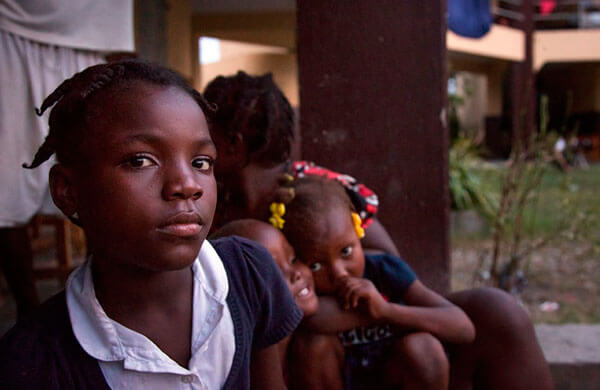In light of the recent devastation wrought by Hurricane Matthew, the United Nations Children’s Fund (UNICEF) is urging that the needs of Haitian children be given priority by legislators and the new government in the French-speaking Caribbean nations, as voting took place on Sunday.
“There [are] still children at risk in Haiti, and 600,000 [are] still in need of aid,” Christophe Boulierac, a spokesperson for UNICEF, told reporters at a regular news briefing on Friday at the UN Office in Geneva (UNOG).
“[We and our] partners [are] working hard in the affected areas as well as in the rest of the country, for the children and their mothers,” he added, referring to the nation’s efforts to recover from Hurricane Matthew, which made landfall on Oct. 4.
Boulierac, who recently returned from a mission to Haiti, said that the situation in Haiti could improve as long as it received continuous support, not just support during emergencies, according to the UN.
He underscored the fact that between 2006 and 2012, despite suffering a devastating earthquake, the country’s school enrolment and nutrition figures had seen significant rise, while infant and under-five mortality rates had decreased.
On the activities of UNICEF in response to the humanitarian needs after the hurricane, Boulierac said that, so far, the agency and its partners have committed to repair 103 of the 716 schools damaged by the storm.
UNICEF and other UN agencies are also supporting health and nutrition programs, and providing safe water through the installation of water treatment plants, the UN said.
Boulierac said that, in response to the water and sanitation challenges, exasperated by “significant flooding” in several towns, UNICEF had quadrupled the number of rapid response teams and was working with the Government of Haiti and local partners to rebuild cholera treatment centers.
“So far, [we have] rebuilt 13 of the 18 cholera treatment centers that had been completely destroyed, and would make sure that they would be integrated back into the health care centers, which needed to be rebuilt,” the UNICEF official said.
Boulierac further reported that on Nov. 10, Haiti’s Ministry of Health, supported by UNICEF and the UN World Health Organization (WHO), had launched a large-scale cholera vaccination campaign, targeting more than 800,000 individuals.
He underscored that vaccinations, water and sanitation, and the right practices, especially washing hands, are “extremely important to prevent occurrence and spread of cholera.”
Additionally, he said that water sanitation intervention teams have also been deployed when a suspected case of cholera is reported to help create a “cordon sanitaire,” understand the cause for contamination and undertake disinfecting, as well as spread awareness, and distribute “aquatabs” (water purification tablets) and other items for water treatment at home.
Boulierac also briefed the media on protection and assistance programs for vulnerable families to reduce family separation, as well as to ensure that families are reunited and that the children’s rights are protected.


























